

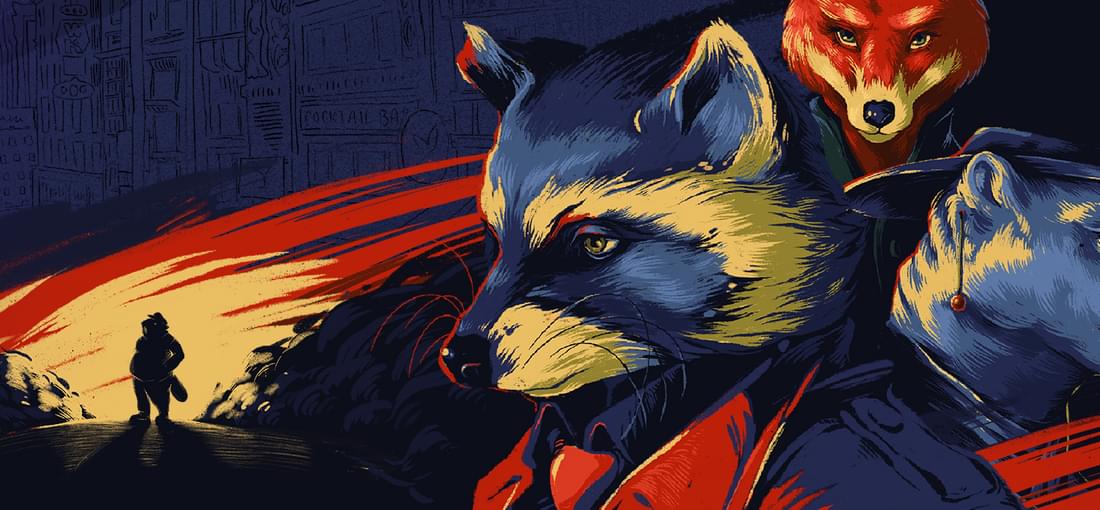
A hard one to rate, for sure. The music, pixel art, characters, atmosphere - all great and worthy of experiencing, there is, however, a but. Prologue and act I introduce you into the game and set a certain tone upon which you base further expectations. There is a decision to be made regarding an approach, which results in visiting two different locations depending on the choice, there is a light puzzle to solve - it plays out as a detective adventure game. After act I the whole game shifts and sadly becomes a walking simulator. No puzzles, no decisions to be made - other than in dialogue, but these options are purely for flavor and role-playing. That would maybe be fine on its own, but somewhere near the middle, you clearly get a sudden Disco Elysium vibe. I don't want to spoil either of these games, however, it feels as if the developers of Backbone got so enamoured by Disco Elysium in the process of making Backbone, that they wanted to emulate certain aspects of ZA/UM's masterpiece and squeeze them into their own game, which just didn't have the space for it. It makes Backbone look like a cheap Disco Elysium rip-off, on top of being disjointed. A shame, because if EggNut stuck to their noir detective vision and continued to build up on what made act I a joy to play, we would have a fantastic game on our hands. Right now, I actually considered giving it a 2-star rating, but in the end settled for 3, as it's not a bad game per se, but not really a good one either.
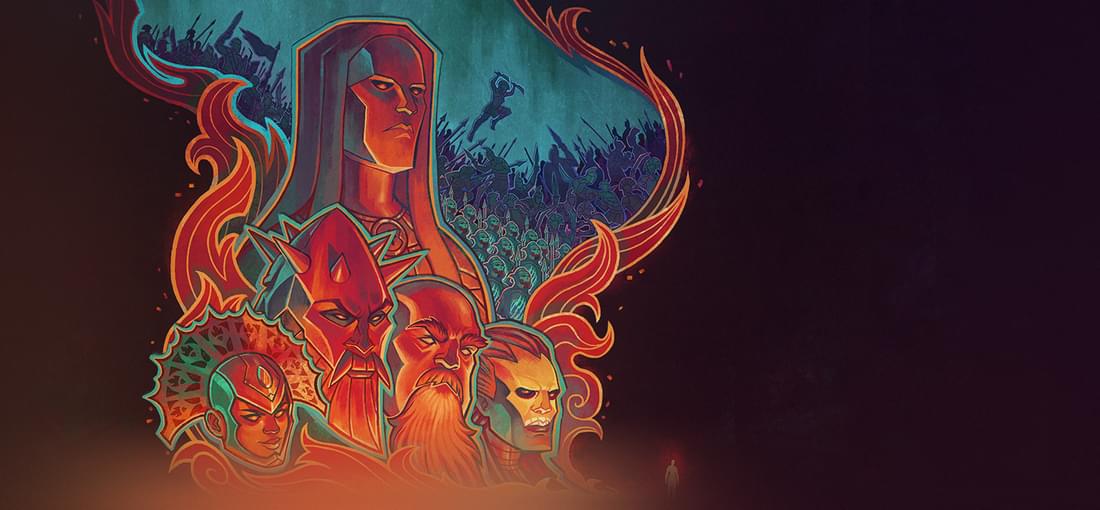
To address the common complaints. * I'm 20-25h in, and there are still two major locations to go to, and three more Spires to claim. Don't know how you can blitz through the game so quickly. * Yes, there are few 'monsters' and you mostly fight human enemies of different factions. IMO, that's just the setting and you either accept that or not. What makes up for the lack of typical fantasy monsters is the extraordinary cast of characters - the ideas behind some of them are among the best I've seen in gaming in the last 20 years. * It may vary, obviously, but I've only experienced a handful of harmless bugs. * Can't comment on replay value, as I'm still in the midst of my first playthrough, but I'm already itching to start a new character and go a different path. * Yes, there are spelling errors here and there. As for the game itself, one of the strongest points of Tyranny is, in my opinion, not being forced to be GOOD. You are not out there to save the world, even though you can try. And that's the beauty, you may choose to be purely evil, disinterested in the struggle, you may betray forged alliances, or just be impartial and do your job as an executioner of justice. I consider the world and lore to be fantastically designed; it's deep but not overwhelming, fresh but not forced. The scope of the game may be smaller than grand RPGs like BG2 or Neverwinter, but the density and replay value (hopefully) make up for it. Writing leaves nothing to be desired (lot of flavor text based on your origin, and skills). Combat works well, it may seem that everything goes too fast at the beginning, but after getting used to it, have to say fighting presents a challenge (I play on Hard) and one has to be smart about the approach towards different enemies. I bought Tyranny without knowing anything about the game (didn't watch gameplays nor read much about the game) and I'm pleasantly surprised, and that comes after being disappointed by Pillars of Eternity. Highly recommended.
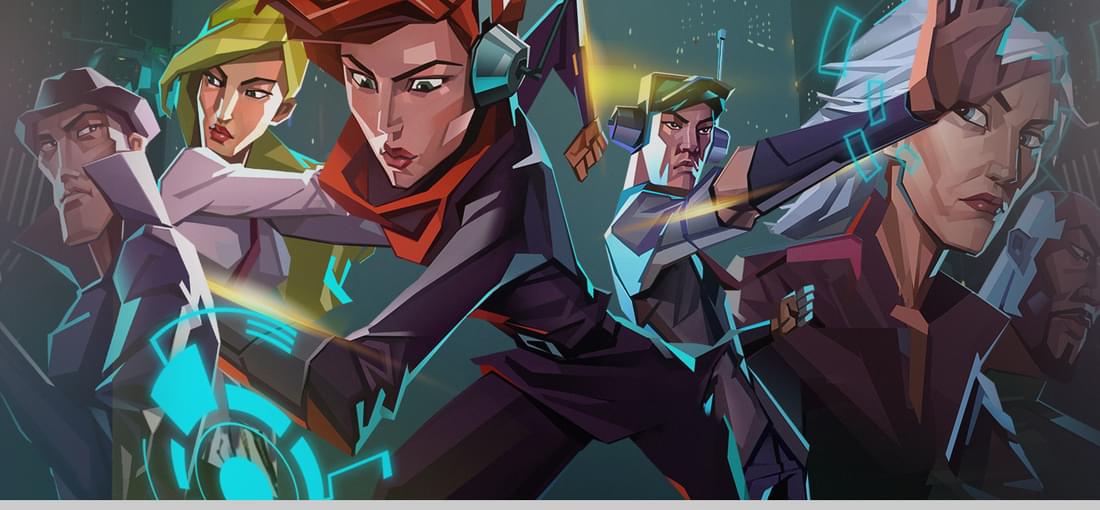
Anyone familiar with the card game Android: Netrunner will instantly spot a lot of similarities, and that's a good thing. You play a small group of hunted operators-infiltrators, who are pressured into a corner by corporations' coordinated effort. They've struck hard, leaving you scraping and clawing for life. However, a powerful system, Incognita, aids you in your infiltration runs by providing a useful programs and tricks that break the corporations cyber defenses, while having a few neat tricks up its sleeve itself. Over the course of the game, you chose between locations of interest all over the world; be that a vault in Venezuela, a nanofabricator in Sydney, a detention center in Paris, or cyber augmentation station to improve your agents. You level up your characters as they gain credit, spending them on four stats: speed, hacking, strength, and anarchy. Each stat offers different benefits, however, credits are sparse and allocating stat upgrades is a tough choice. Especially so, considering that credits is the only currency in the game, so you will be walking a fine line between well developed agents and well equipped agents. As for the gameplay itself, every level is randomly generated, but always makes sense. The infiltrators (roster of 10; you always start with 2, but can free up to 2 more through missions) face a myriad of challenges in the form of guards, cameras, firewalls, deamons, laser grids, drones etc, all of which have to be somehow avoided - a straight-up fight is not a viable option. Interestingly, you cannot linger; after each turn, a security clock ticks towards security thresholds, making your task far more complicated. Even if you fail in your task, whatever progress you've made will carry over to the next session, unlocking new programs, and agents. Invisible Inc. is an extremely fun, hard and competent 2D, rouglike, turn-based stealth game with a great, futuristic atmosphere. However inconceivable this combination sounds, it works.
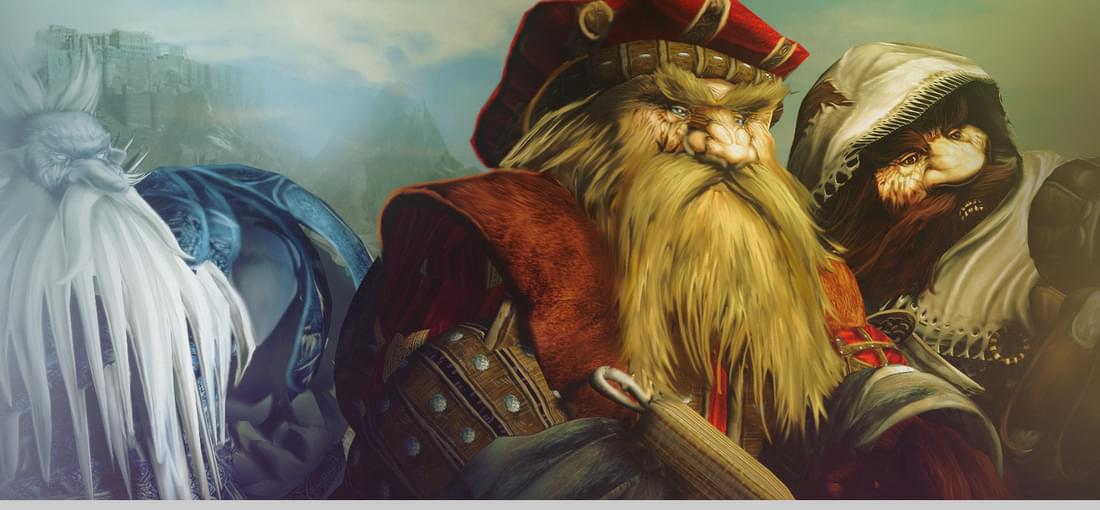
If you crave for a dark fantasy setting and story, Disciples 2 will satiate your hunger. The campaign is huge and divided into sets of missions for each faction that interweave with one another. There are 4 main races (5th one, elves, is added through a expansion, but they feel somewhat odd) - undead hordes, mountain clans, empire and legions of the damned. Every single race has a unique flavor to them that goes beyond the game - even on the canvas of the fantasy genre they feel somewhat exceptional. The Legions deserve an honorable mention as they have the best designed demons I've ever seen in a video game - they are flatout twisted and disturbing, and the artworks inflame their wickedness even more. In general, the art and design behind Disciples extraordinary. As for the gameplay, the main concept is that you posses only several units that level up and change (I'm talking assuming entirely different, more powerful forms) according to the development path you chosen. These paths are branching and as you make your choice other are excluded. It gives the game tons of flexibility and replayability. You choose your hero and start exploring, fighting (tough turn-based battles without movement [you form two lines - front line and support line] and a % chance to hit), acquiring assets, sabotaging the enemy, using diplomacy etc. Disciples 2 offers a lot and executed its ideas wonderfully. I choose Disciples 2 over my once-beloved HoMM 3.
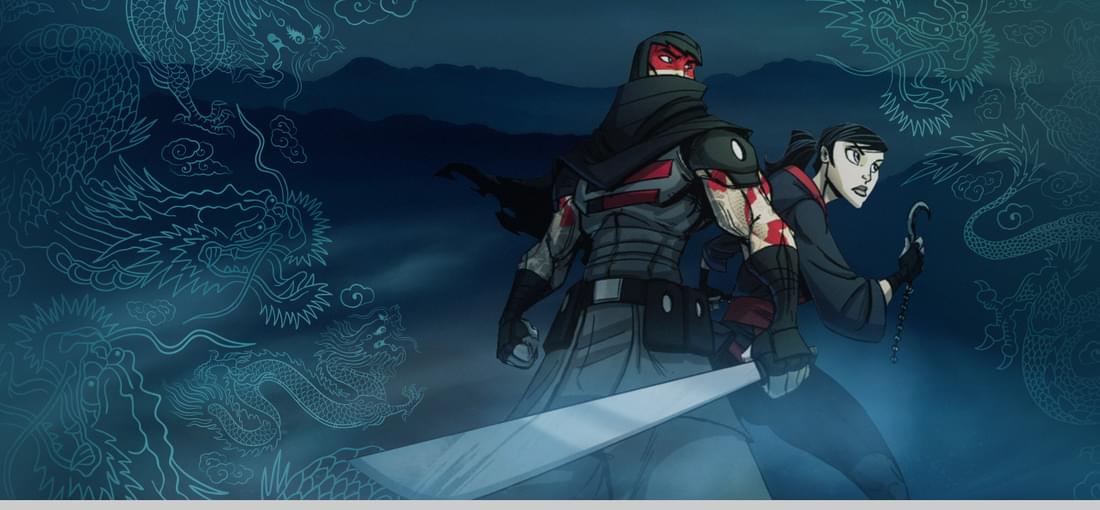
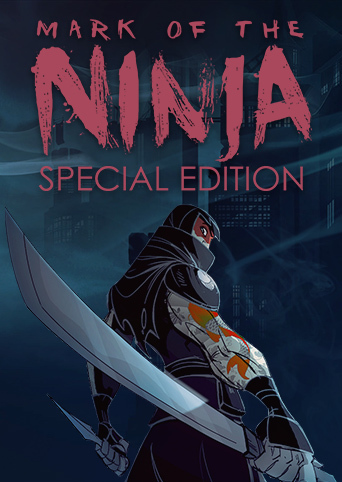
Stealth side-scrollers are few and far between on the market, but fortunately Mark of the Ninja fills the void as a quality title. The gameplay mechanics (ah, the thrill of the kill is nailed perfectly here) and the controls are so smooth you almost feel like a ninja yourself while playing. As you progress, the story is nothing to write home about until the brilliant ending that takes the center stage and leaves you in awe. The game encourages replaying and multiple approaches through a variety of vastly different equipment and costumes which dramatically alter the experience (for instance the Path of Silence costume further enhances your stealth abilities but you don't carry your katana). Great game, strongly recommended.
Completely agree with Faenrir review. The entire combat mechanics are broken to say the least - the game heavily favors bows and crossbows, to a point where it is impossible to progress without at least one fully specialized archer. Furthermore, as already been mentioned, the fights feel way too random. I'd add there are lot of questionable design choices (both story-driven and regarding mechanics) The interactive environment feature is just a gimmick. When you can interact with stuff on the battlefield, it usually means you have to do so, or you will be flatout defeated. The story in Blackguards serves its purpose and is solid (even though predictable), voice acting is hit or miss. For me, the main problem is that the game feels extremely unnatural, dull and static. It created a huge immersion problem for me, where every play session was a grind and I often found myself not really wanting to play this. 1,5 stars at best.
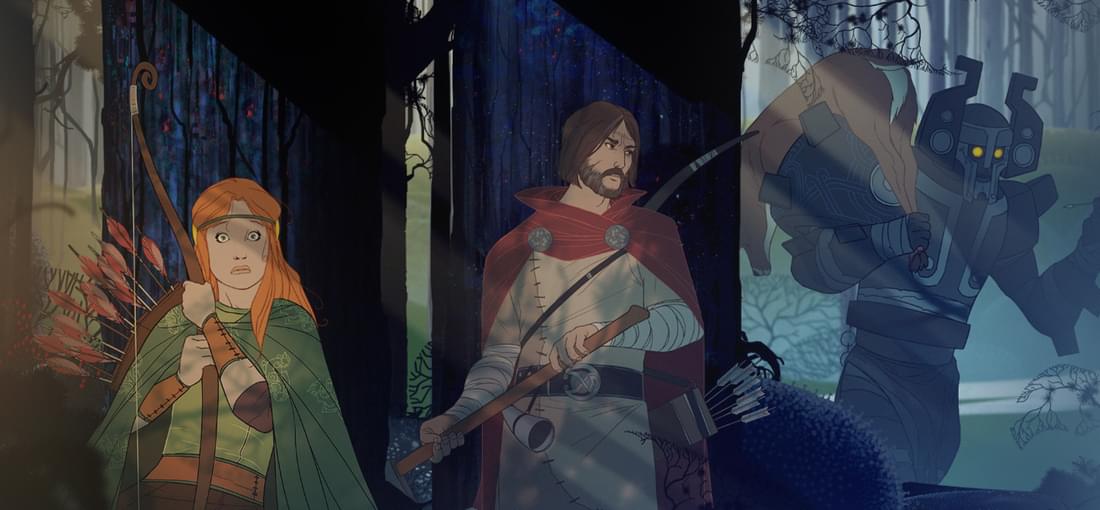
The game tells a story of varl (giants with horns) and humans as they struggle to survive in a dark time of dredge (stone-like figures) invasion. The player controls a handful of heroes leading a caravan that just tries to make it in the harsh reality of war. During the struggle the player faces myriad of difficult choices. As a caravan leader, you must manage supplies (boy are they scarce!), morale of the entire group, the roster of fighters and how to spend renown points - the only currency in the game. The combat is turn-based with a twist - the turns are always you-enemy-you-enemy and so forth, no matter the numbers. Your heroes have stats - each is equally important and enhances the tactical aspect of the battles. Classes are varied - each has a special unique active ability and one passive ability. The graphics are hand drawn and a pleasure to look at. Animations of the characters are very fluid. The music is definitely one of the highlights of this game - composed by Austin Wintory, it sets a tone for the harrowing experience and fits perfectly to the snowy lands the game takes place in. Furthermore, the game has replay value, as you can make different choices and end up with a significantly different roster and problems along the way. But probably the biggest upside of this game is its atmosphere and how easy it is to immerse yourself in the bleak reality of Banner Saga.